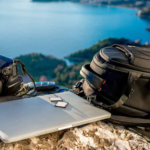In today’s fast-paced, wanderlust-driven world, it’s no secret that many of us dream of jet-setting off to exotic locales, immersing ourselves in new cultures, and creating memories that last a lifetime. But all too often, the seemingly insurmountable hurdle of cost holds us back from turning these fantasies into reality. Fear not, intrepid explorer! Smart travel budgeting is not only possible, but it can also be the key to unlocking an affordable and unforgettable adventure. In this must-read guide, we’ll share top tips and insider secrets to help you stretch your travel dollars further than ever before. So pack your bags, fasten your seatbelts, and get ready to discover how you can embark on the journey of a lifetime without breaking the bank. The world is truly your oyster, and we’re here to help you savor every last drop of its enchanting allure, all while keeping your wallet happy and healthy.
Importance of Creating a Travel Budget
Traveling can be an incredibly enriching experience, but it can also be quite expensive. That’s where the importance of creating a travel budget comes in. By having a budget in place, you can ensure that you don’t overspend and end up in financial trouble once you return from your trip. A well-planned budget allows you to prioritize your spending, ensuring that you allocate funds for the things that matter most to you. This could mean allocating more money towards experiences like tours and attractions, or perhaps saving money by choosing more budget-friendly accommodations.
Creating a travel budget also helps you to plan your trip more effectively. You’ll be able to determine how long you can afford to stay in your chosen destination, which attractions you can visit, and what type of accommodations you can book. By being aware of your financial limitations, you can make informed decisions that will ultimately lead to a more enjoyable and stress-free trip. Furthermore, a budget can help you identify areas where you may need to save more money before your trip or cut back on certain expenses in order to make your dream vacation a reality.
Finally, having a travel budget in place can give you a sense of accomplishment and control over your finances. It can be all too easy to get carried away with spending while on vacation, but by sticking to a predetermined budget, you can avoid the post-vacation financial blues. So, before you start planning your next adventure, make sure to take the time to create a detailed and realistic travel budget that will help you make the most of your trip without breaking the bank.
Top Money-Saving Tips for Travelers
One of the most important aspects of smart travel budgeting is knowing how to save money on various aspects of your trip. While it may seem daunting at first, there are plenty of simple and effective ways to cut costs without sacrificing the quality of your travel experience. Here are some top money-saving tips for travelers:
Firstly, be flexible with your travel dates. Flight and accommodation prices can vary greatly depending on the time of year, day of the week, and even time of day. By being open to traveling during off-peak seasons or on weekdays, you can score significant discounts on airfare and lodging. Additionally, consider booking your flights and accommodations well in advance, as prices tend to increase the closer you get to your travel dates.
Secondly, take advantage of rewards programs, credit card points, and travel-related discounts. Many airlines, hotels, and travel-related businesses offer loyalty programs that can help you earn points or rewards that can be redeemed for future travel expenses. Additionally, some credit cards offer travel rewards, such as cashback or points that can be used towards flights, accommodations, and other travel-related expenses. Be sure to research and sign up for these programs, as they can save you a considerable amount of money in the long run.
Lastly, don’t be afraid to negotiate or haggle for better prices, especially when it comes to accommodations and local services in foreign countries. While this may not be as common in Western countries, many cultures around the world welcome and even expect bargaining as a part of the purchasing process. By being polite and respectful, you may be able to secure a better deal on accommodations, transportation, or even souvenirs, helping you to stretch your travel budget even further.
Choosing Budget-Friendly Travel Destinations
The cost of travel can vary greatly depending on your chosen destination. While some countries and cities are notoriously expensive, there are plenty of budget-friendly options out there that offer just as much excitement, culture, and natural beauty. When planning your trip, consider researching and choosing destinations where your money is likely to go further. This might mean opting for less popular tourist destinations or countries with a lower cost of living.
When selecting a budget-friendly travel destination, consider factors such as exchange rates, average daily costs for accommodations, meals, and transportation, as well as the cost of popular tourist attractions. Websites and travel forums can be an excellent resource for finding information on budget-friendly destinations and comparing the costs of different countries and cities. In general, countries in Southeast Asia, Central and Eastern Europe, and parts of Central and South America are known for being more affordable for travelers.
Keep in mind, however, that just because a destination is considered budget-friendly does not mean that you have to compromise on quality or experiences. Many of these destinations offer incredible cultural experiences, breathtaking landscapes, and unique attractions that are just as memorable as their more expensive counterparts. By choosing a budget-friendly destination, you can enjoy an unforgettable adventure without breaking the bank.
Finding Affordable Accommodations
Accommodations can be one of the most significant expenses of any trip, but there are plenty of ways to find affordable options without sacrificing comfort or quality. One of the best ways to save money on accommodations is to avoid hotels and instead opt for alternative lodging options. Consider booking a stay in a hostel, guesthouse, or bed and breakfast, as these can often be much cheaper than traditional hotels. Many hostels offer private rooms in addition to dormitory-style accommodations, so you don’t necessarily have to sacrifice privacy for affordability.
Another great option for budget-conscious travelers is to book a vacation rental through websites like Airbnb or VRBO. These platforms allow you to rent private rooms or entire apartments or homes, often at a fraction of the cost of a hotel. Plus, having access to a kitchen can help you save money on meals by cooking your own food instead of eating out for every meal. Be sure to book early and read reviews to ensure that you find the best possible rental for your needs and budget.
Finally, consider using websites like Couchsurfing, which connects travelers with locals who are willing to offer a free place to stay. While this option may not be for everyone, it can be an excellent way to save money on accommodations while also getting a unique, local perspective on your destination. Just be sure to read host reviews and communicate with your potential host before committing to ensure that you feel comfortable and safe with your lodging choice.
Saving on Transportation Costs
Transportation can be another significant expense when traveling, but there are several ways to save money on getting around. When booking flights, be sure to comparison shop and use websites like Skyscanner, Google Flights, or Kayak to find the best deals. Additionally, consider booking flights with layovers or flying into smaller airports, as these options can often be cheaper than direct flights or flights into major hubs.
Once you’ve arrived at your destination, consider using public transportation, walking, or biking to get around. Not only are these options often more affordable than taxis or rental cars, but they can also provide a more authentic and immersive experience of the local culture. Be sure to research public transportation options and fares in advance, and consider purchasing multi-day or weekly passes if you plan on using public transit frequently during your trip.
If you need to rent a car, be sure to shop around for the best prices and book well in advance, as prices can increase closer to your travel dates. Additionally, consider using a credit card that offers rental car insurance coverage, as this can save you money on the often expensive insurance offered by rental car companies. Finally, if you plan on traveling between cities or countries, consider using buses, trains, or even ridesharing services like BlaBlaCar, as these can be more affordable alternatives to flying or renting a car.
Eating on a Budget While Traveling
Food can be one of the most memorable aspects of any trip, but it can also be a significant expense. To save money on meals while traveling, consider cooking your own food whenever possible. Staying in accommodations with a kitchen or kitchenette allows you to prepare meals at a fraction of the cost of eating out. Be sure to visit local grocery stores or markets to stock up on affordable, fresh ingredients.
When eating out, try to avoid touristy areas and instead seek out local restaurants and street food vendors. Not only will you likely find more authentic and affordable meal options, but you’ll also have the opportunity to experience the local cuisine and culture more intimately. Additionally, consider eating your main meal during lunchtime, as many restaurants offer discounted lunch specials that can be significantly cheaper than dinner prices.
Finally, don’t be afraid to ask locals for recommendations on affordable and delicious places to eat. This can be an excellent way to discover hidden gems that may not be listed in guidebooks or online. Plus, engaging with locals can provide valuable insight into the local culture and enhance your overall travel experience.
Budgeting for Attractions and Activities
Experiencing local attractions and activities is often a highlight of any trip, but these experiences can also be quite expensive. To save money on attractions and activities, consider researching and prioritizing your must-see sights and experiences before your trip. This will allow you to allocate your budget accordingly and ensure that you don’t miss out on the things that are most important to you.
Once you have a list of must-see attractions and activities, look for ways to save on admission fees or costs. Many attractions offer discounts for students, seniors, or military personnel, so be sure to bring your ID or other documentation to take advantage of these savings. Additionally, consider purchasing multi-attraction passes or city cards, which often provide discounted or free admission to many popular sights and activities. Be sure to research these options in advance and compare the cost of the pass to the individual admission fees to ensure that you’re getting the best deal.
Finally, don’t forget to explore free or low-cost attractions and activities during your trip. Many cities offer free walking tours, museums with free or pay-what-you-wish admission, and beautiful parks or natural attractions that can be enjoyed at no cost. By incorporating these options into your itinerary, you can experience the best of what your destination has to offer without breaking the bank.
Money Management Tips During Your Trip
Managing your money responsibly during your trip is crucial to staying within your budget and avoiding financial stress. Here are some money management tips to help you keep your spending in check while traveling:
First, set a daily spending limit and track your expenses. By having a predetermined daily budget, you can ensure that you don’t overspend and end up running out of funds before the end of your trip. Use a smartphone app or a simple pen and paper to track your daily spending, and adjust your budget as necessary to ensure that you stay on track.
Second, be mindful of currency exchange rates and fees. When exchanging money, be sure to shop around for the best rates and avoid exchanging money at airports or touristy areas, as these locations often have higher fees and less favorable rates. Additionally, consider using a credit card with no foreign transaction fees or a debit card with low or no ATM fees to minimize the cost of accessing your funds while traveling.
Lastly, protect your money and valuables during your trip. Unfortunately, theft and pickpocketing can be a risk when traveling, so be sure to take precautions to keep your money and belongings safe. Use a money belt or hidden pouch to store your cash and important documents, and avoid carrying large amounts of cash or flashy valuables that might attract attention. Additionally, be sure to have backups of your important documents, such as your passport and credit cards, in case they are lost or stolen.<br













